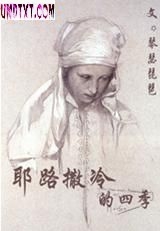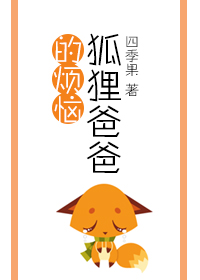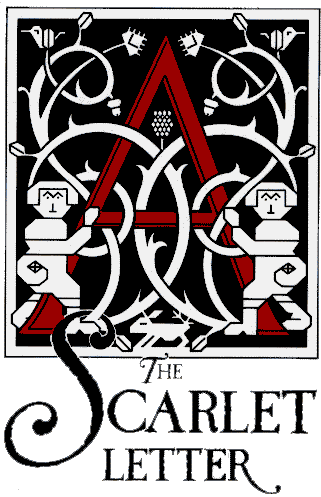四季随笔-the private papers of henry ryecroft(英文版)-第23部分
按键盘上方向键 ← 或 → 可快速上下翻页,按键盘上的 Enter 键可回到本书目录页,按键盘上方向键 ↑ 可回到本页顶部!
————未阅读完?加入书签已便下次继续阅读!
known revolt against the privilege of wealth (can I not remember spots in London where I have stood; savage with misery; looking at the prosperous folk who passed?); but I could never feel myself at one with the native poor among whom I dwelt。 And for the simplest reason; I came to know them too well。 He who cultivates his enthusiasm amid graces and forts may nourish an illusion with regard to the world below him all his life long; and I do not deny that he may be the better for it; for me; no illusion was possible。 I knew the poor; and I knew that their aims were not mine。 I knew that the kind of life (such a modest life!) which I should have accepted as little short of the ideal; would have been to them……if they could have been made to understand it……a weariness and a contempt。 To ally myself with them against the 〃upper world〃 would have been mere dishonesty; or sheer despair。 What they at heart desired; was to me barren; what I coveted; was to them for ever inprehensible。
That my own aim indicated an ideal which is the best for all to pursue; I am far from maintaining。 It may be so; or not; I have long known the idleness of advocating reform on a basis of personal predilection。 Enough to set my own thoughts in order; without seeking to devise a new economy for the world。 But it is much to see clearly from one's point of view; and therein the evil days I have treasured are of no little help to me。 If my knowledge be only subjective; why; it only concerns myself; I preach to no one。 Upon another man; of origin and education like to mine; a like experience of hardship might have a totally different effect; he might identify himself with the poor; burn to the end of his life with the noblest humanitarianism。 I should no further criticize him than to say that he saw with other eyes than mine。 A vision; perhaps; larger and more just。 But in one respect he resembles me。 If ever such a man arises; let him be questioned; it will be found that he once made a meal of blackberries……and mused upon it。
XVI
I stood to…day watching harvesters at work; and a foolish envy took hold upon me。 To be one of those brawny; brown…necked men; who can string their muscles from dawn to sundown; and go home without an ache to the sound slumber which will make them fresh again for to… morrow's toil! I am a man in the middle years; with limbs shaped as those of another; and subject to no prostrating malady; yet I doubt whether I could endure the lightest part of this field labour even for half an hour。 Is that indeed to be a man? Could I feel surprised if one of these stalwart fellows turned upon me a look of good…natured contempt? Yet he would never dream that I envied him; he would think it as probable; no doubt; that I should pare myself unfavourably with one of the farm horses。
There es the old idle dream: balance of mind and body; perfect physical health bined with the fulness of intellectual vigour。 Why should I not be there in the harvest field; if so it pleased me; yet none the less live for thought? Many a theorist holds the thing possible; and looks to its ing in a better time。 If so; two changes must needs e before it; there will no longer exist a profession of literature; and all but the whole of every library will be destroyed; leaving only the few books which are universally recognized as national treasures。 Thus; and thus only; can mental and physical equilibrium ever be brought about。
It is idle to talk to us of 〃the Greeks。〃 The people we mean when so naming them were a few little munities; living under very peculiar conditions; and endowed by Nature with most exceptional characteristics。 The sporadic civilization which we are too much in the habit of regarding as if it had been no less stable than brilliant; was a succession of the briefest splendours; gleaming here and there from the coasts of the Aegean to those of the western Mediterranean。 Our heritage of Greek literature and art is priceless; the example of Greek life possesses for us not the slightest value。 The Greeks had nothing alien to study……not even a foreign or a dead language。 They read hardly at all; preferring to listen。 They were a slave…holding people; much given to social amusement; and hardly knowing what we call industry。 Their ignorance was vast; their wisdom a grace of the gods。 Together with their fair intelligence; they had grave moral weaknesses。 If we could see and speak with an average Athenian of the Periclean age; he would cause no little disappointment……there would be so much more of the barbarian in him; and at the same time of the decadent; than we had anticipated。 More than possibly; even his physique would be a disillusion。 Leave him in that old world; which is precious to the imagination of a few; but to the business and bosoms of the modern multitude irrelevant as Memphis or Babylon。
The man of thought; as we understand him; is all but necessarily the man of impaired health。 The rare exception will be found to e of a stock which may; indeed; have been distinguished by intelligence; but represented in all its members the active rather than the studious or contemplative life; whilst the children of such fortunate thinkers are sure either to revert to the active type or to exhibit the familiar sacrifice of body to mind。 I am not denying the possibility of mens sana in corpore sano; that is another thing。 Nor do I speak of the healthy people (happily still numerous) who are at the same time bright…witted and fond of books。 The man I have in view is he who pursues the things of the mind with passion; who turns impatiently from all mon interests or cares which encroach upon his sacred time; who is haunted by a sense of the infinity of thought and learning; who; sadly aware of the conditions on which he holds his mental vitality; cannot resist the hourly temptation to ignore them。 Add to these native characteristics the frequent fact that such a man must make merchandise of his attainments; must toil under the perpetual menace of destitution; and what hope remains that his blood will keep the true rhythm; that his nerves will play as Nature bade them; that his sinews will bide the strain of exceptional task? Such a man may gaze with envy at those who 〃sweat in the eye of Phoebus;〃 but he knows that no choice was offered him。 And if life has so far been benignant as to grant him frequent tranquillity of studious hours; let him look from the reapers to the golden harvest; and fare on in thankfulness。
XVII
That a labourer in the fields should stand very much on the level of the beast that toils with him; can be neither desirable nor necessary。 He does so; as a matter of fact; and one hears that only the dullest…witted peasant will nowadays consent to the peasant life; his children; taught to read the newspaper; make what haste they can to the land of promise……where newspapers are printed。 That here is something altogether wrong it needs no evangelist to tell us; the remedy no prophet has as yet even indicated。 Husbandry has in our time been glorified in eloquence which for the most part is vain; endeavouring; as it does; to prove a falsity……that the agricultural life is; in itself; favourable to gentle emotions; to sweet thoughtfulness; and to all the human virtues。 Agriculture is one of the most exhausting forms of toil; and; in itself; by no means conducive to spiritual development; that it played a civilizing part in the history of the world is merely due to the fact that; by creating wealth; it freed a portion of mankind from the labour of the plough。 Enthusiasts have tried the experiment of turning husbandman; one of them writes of his experience in notable phrase。
〃Oh; labour is the curse of the world; and nobody can meddle with it without being proportionately brutified。 Is it a praiseworthy matter that I have spent five golden months in providing food for cows and horses? It is not so。〃
Thus Nathaniel Hawthorne; at Brook Farm。 In the bitterness of his disillusion he went too far。 Labour may be; and very often is; an accursed and a brutalizing thing; but assuredly; it is not the curse of the world; nay; it is the world's supreme blessing。 Hawthorne had mitted a folly; and he paid for it in loss of mental balance。 For him; plainly; it was no suitable task to feed cows and horses; yet many a man would perceive the nobler side of such occupation; for it signifies; of course; providing food for mankind。 The interest of this quotation lies in the fact that; all unconsciously; so intelligent a man as Hawthorne had been reduced to the mental state of our agricultural labourers in revolt against the country life。 Not only is his intellect in abeyance; but his emotions have ceased to be a true guide。 The worst feature of the rustic mind in our day; is not its ignorance or grossness; but its rebellious discontent。 Like all other evils; this is seen to be an inevitable oute of the condition of things; one understands it only too well。 The bucolic wants to 〃better〃 himself。 He is sick of feeding cows and horses; he imagines that; on the pavement of London; he would walk with a manlier tread。
There is no help in visions of Arcadia; yet it is plain fact that in days gone by the peasantry found life more than endurable; and yet were more intelligent than our clod…hoppers who still hold by the plough。 They had their folk…songs; now utterly forgotten。 They had romances and fairy lore; which their descendants could no more appreciate than an idyll of Theocritus。 Ah; but let it be remembered that they had also a HOME; and this is the illumining word。 If your peasant love the fields which give him bread; he will not think it hard to labour in them; his toil will no longer be as that of the beast; but upward…looking and touched with a light from other than the visible heavens。 No use to blink the hard and dull features of rustic existence; let them rather be insisted upon; that those who own and derive profit from the land may be constant in human care for the lives which make it fruitful。 Such care may perchance avail; in some degree; to counteract the restless tendency of the time; the dweller in a pleasant cottage is not so likely to wish to wander from it as he who shelters himself in a hovel。 Well… meaning folk talk about reawakening love of the country by means of delibe

![四季倾城[高干]封面](http://www.baxi2.com/cover/17/17408.jpg)

![影帝在上[娱乐圈] 作者:四季之夏封面](http://www.baxi2.com/cover/21/21601.jpg)
![[士兵突击高袁]四季歌封面](http://www.baxi2.com/cover/22/22408.jpg)

![(士兵突击同人)[士兵突击高袁]四季歌封面](http://www.baxi2.com/cover/23/23509.jpg)
